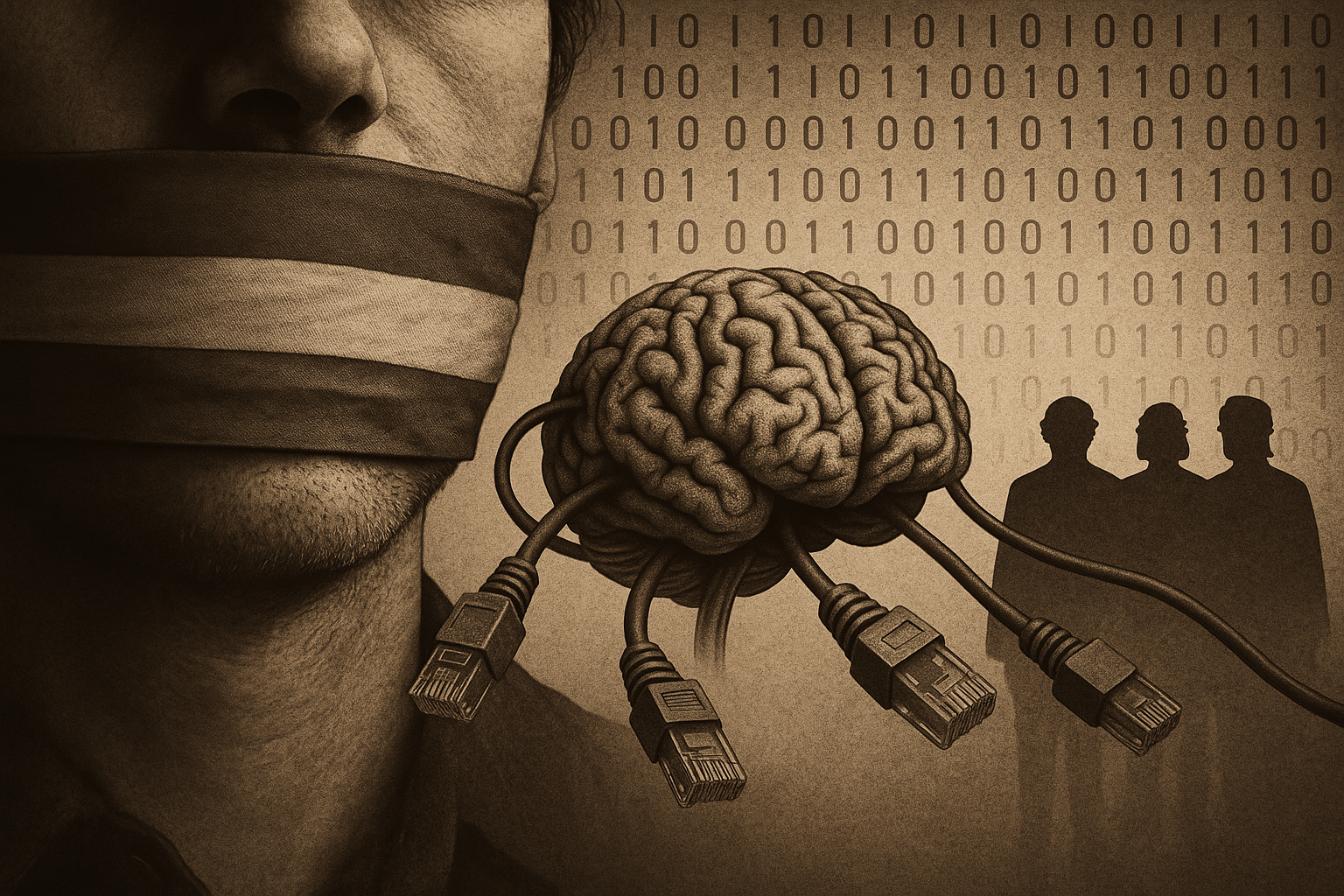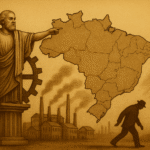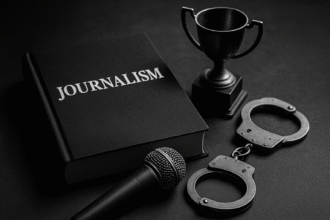We live in paradoxical times. In the name of democracy, freedom of expression is limited. In the name of protecting against “hate speech,” dissent is criminalized. In the name of defending the truth, single-minded thinking is once again dominating the public sphere. This is the core of the new censorship: it does not present itself as oppression, but as care. And precisely for this reason, it is more dangerous.
The new face of censorship
Historically, censorship was easy to recognize: banned books, closed newspapers, exiled authors. Today, it operates in a more subtle way. Books are not burned, but social media profiles are. Works are not banned directly, but channels are demonetized, content reach is limited, and algorithms are used as a gag.
Modern censorship comes dressed in a toga, a lab coat, and a technocratic suit. It speaks in the name of “science,” “security,” and “institutional balance.” But the result is the same: the silencing of uncomfortable voices and the exclusion of ideas that are not on the menu approved by consensus.
The naturalization of single thought
One of the greatest triumphs of contemporary authoritarianism is to make censorship seem reasonable. It’s the old “but…” tactic: “I’m in favor of freedom of expression, but…” followed by some exception that, in practice, nullifies the principle. Thus, pluralism is replaced by a semblance of diversity, where everyone says the same thing in different words.
The result of this is a homogenization of public debate. There is no longer a clash of ideas, but rather alignment with the official narrative. Anyone who questions the political, legal or media establishment is labeled as “denialist”, “extremist” or “anti-democratic”.
The role of the press and institutions
Instead of defending freedom as a non-negotiable value, much of the contemporary press acts as a watchdog of acceptable speech. Alongside it, institutions such as higher courts and international organizations impose parameters of truth and civility that function as ideological fences.
The Supreme Federal Court, for example, has become an active player in regulating language. Investigations into “fake news” and “anti-democratic acts” go beyond the criminal sphere and invade the realm of opinion. In addition, digital platforms are being called upon to act as partners in state control of information.
Censorship by algorithm
The new censor has no face, no signature. It is an algorithm trained to favor certain types of speech and suppress others. It is the obscure criterion of “community safety.” It is automatic removal, shadowban, demonetization.
This makes censorship both more efficient and harder to challenge. After all, there is no human censor to be held accountable. There is just a “system error” or a generic “usage guideline.”
The morality of silencing
Today, censorship is based on an artificial morality. Censorship is not imposed by imposition, but by protection. It protects the reader from “misinformation,” the voter from “manipulation,” and society from ideas considered dangerous. But who defines what is dangerous? Who decides what can or cannot be said?
The answer is always the same: those in power. Which brings us back to the central problem of freedom: it is always uncomfortable for those who want to control.
Freedom as a right, not a concession
The right to freedom of speech cannot depend on the approval of others. True freedom includes the right to be wrong, to be unpopular, to say what is uncomfortable. As George Orwell said: to listen.
“If freedom means anything, it is above all the right to tell other people what they do not want.“
Today, this right is under threat. Dissent has become heresy. Plurality has become a threat. And democracy, ironically, has become the pretext for silence instead of listening.
Conclusion: what is at stake
It is not just about social media, controversial opinions or political memes. What is at stake is the future of public debate, critical education and real democracy. The new censorship, due to its pervasive form and benevolent discourse, represents an unprecedented challenge for free societies.
Resisting censorship is not about defending informational chaos. It is about defending the principle that truth does not need state protection to exist. That knowledge flourishes from confrontation, not from imposition.
That's why, The Poder & Mercado blog will continue to be a trench against single-minded thinking, in defense of freedom as a non-negotiable value.
Read also:
📩 Subscribe to our Economic Radar newsletter and receive analyses like this directly to your email.






2 Comments